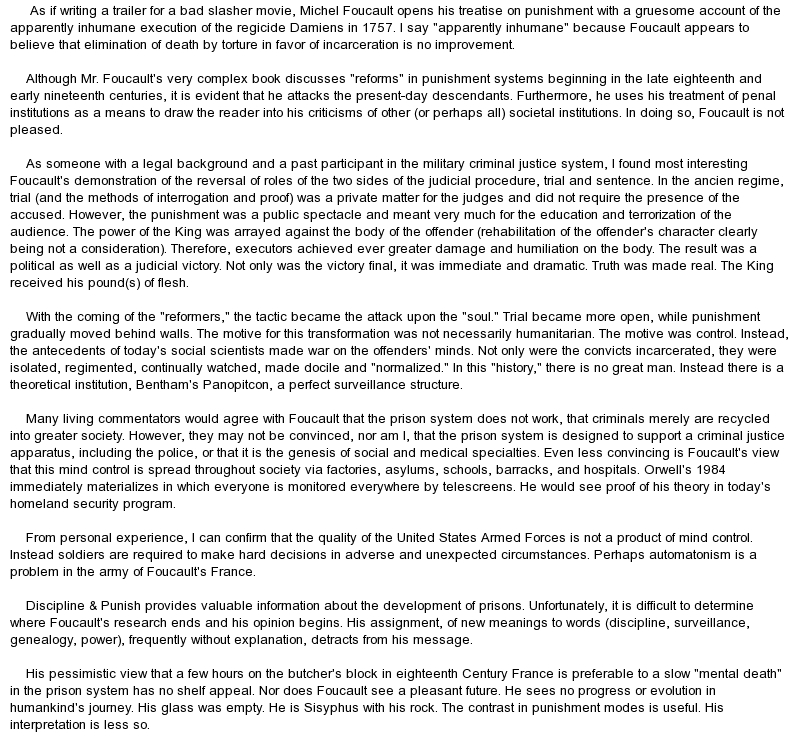
Society must now create a system in which these norms are enforced, in which the norms are so powerful that people don’t even think of committing the crimes that would be so easy for them to commit.Įnter what Foucault calls the “gentle way of punishment,” which has six main rules or principles. The thief has transgressed a social contract we’ve all implicitly signed that says we won’t steal from each other. Anyone might steal, given the chance, or similarly commit any such crime of “fraud.” But in doing so, that person has violated not just the person he steals from, but also society as a whole. This is a deceptively radical shift, because it entails that the problem is not evil individuals, but the tendency for anyone in society to be tempted to break the rules for their benefit. Now, the aim is to maintain a well-behaved society, rather than gloriously punishing affronts to the king. All these factors together set the stage for reforming the criminal system entirely.

Moreover, there is in both cases an emphasis on what the people want, rather than what the king wants. There is less violent crime, with a focus on “fraud” rather than “blood.” Second, there is less violent punishment, with a call for less painful punishment.


Thus, there is a “double movement” in crime and punishment at the turn of the century. Now, these private citizens want to protect their property, and they are especially concerned with crimes that infringe upon the value they place on the things they own. In a capitalist society, land is owned by private citizens rather than, as in a feudal society, by the monarch. More so than murder, a “crime of blood,” people worried about things like theft, or “crimes of fraud.” One of the things that made this possible was the rise of a sense of private property. A large part of this was the rise of crimes against property. Moreover, the public began to conceive of crimes as being injuries to themselves, not just the monarch. But it increasingly faces the anger of the people, or general public, when they feel the monarch is acting unjustly. This made such spectacles a “dangerous confrontation between the violence of the sovereign and the violence of the people.” An execution is supposed to be sovereign violence, or an exercise of the monarch’s control over life and death. He begins by noting a surge in petitions, in the late 1700s, against torture, executions, and other public spectacles of pain. The second part of Discipline and Punish, titled “Punishment,” goes into more historical detail about the larger transformation Foucault discussed in the previous part, ranging from roughly 1750-1850.


 0 kommentar(er)
0 kommentar(er)
